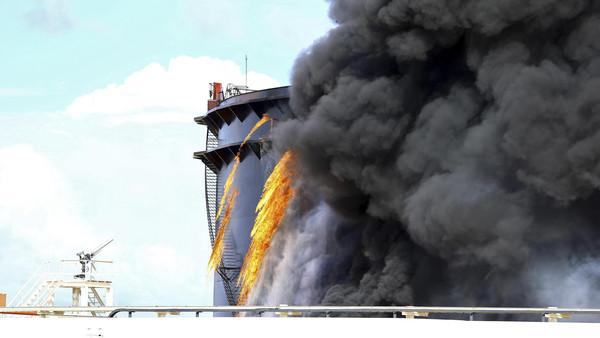
2015: GLOBAL OIL SPLITS

Robust recovery in the United States, a moribund euro zone and slowing Chinese growth reflect global splits which plunging oil prices are likely to widen.
On the face of it, lower energy bills should give consumers and companies more money to spend and boost economic growth, at least for oil importers.
But for those countries facing stagnation or even deflation the prospect of downward pressure on prices is more worrying.
The likelihood is that a near 60 percent fall in the price of oil - from above $115 in mid-2014 to just $50 - will see those already growing strongly pick up further, leaving the laggards trailing in their wake.
Central bankers in the United States and Europe have clearly expressed the divide over an oil dividend in recent weeks.
"It is a huge plus for consumers, for businesses," San Francisco Fed President John Williams said on Monday. A drag from weak economies elsewhere in the world would not counteract that, he calculated.
Williams is not alone. Minutes of the Fed's December meeting said some of those present thought "the boost to domestic spending coming from lower energy prices could turn out to be quite large".
Compare that with European Central Bank chief economist Peter Praet, speaking on the last day of 2014, days before euro zone inflation turned negative for the first time since 2009.
"With the recent oil prices, inflation would be even lower, even substantially lower than expected so far," he said, noting that in the past the ECB would have looked past external shocks such as this but could no longer afford to.
"In an environment ... in which inflation expectations are extremely fragile we cannot simply 'look through'."
Markets are certain the ECB will launch a Fed-style government bond-buying program with new money. Given that it may be curbed in some way to meet German concerns, there is much less certainty that it will deliver a jolt.
Most economists agree the U.S. economy will benefit from low oil, which will harden expectations of an interest rate rise this year, but some see real stress elsewhere.
"You've got a handful of places that are seemingly doing very well – like the U.S., the UK, Canada - but it trails off pretty quickly after that," said Carl Tannenbaum, chief economist at Northern Trust.
"It's pretty rare that you have a price adjustment this significant in a market that is this significant and not have some corner of the market or the world really cause some instability."
OIL PRODUCERS HIT
For the major oil producers, the price plunge is a clear negative although the Gulf oil nations have the reserves to ride through this unscathed.
Russia's malaise is partly due to western sanctions over Ukraine but oil is probably a bigger factor in heralding a deep recession. The Kremlin needs something around $100 per barrel to make its budget work. A price of half that must mean steep tax rises and spending cuts or an alarming depletion of Moscow's currency reserves.
Norway has been more prudent. Not a cent of oil revenue is used for budget spending, it merely spends the returns on the hundreds of billions of oil wealth saved in the past.
But lower returns means petroleum investments are likely to fall, cutting future state revenues.
"Growth in Norway's mainland GDP will be much lower than we've been used to," central bank governor Oeystein Olsen told Reuters. "(Oil field) profitability is starting to become much more marginal."
For Japan, with a central bank pumping out money to get prices up, the story is a mixed one.
As a huge fuel importer, low oil will help the economy but it may not be enough to nudge Japanese households and companies, who hoarded cash during nearly two decades of deflation, to spend.
The oil rout complicates life for the Bank of Japan as it strives to get inflation from below 1 percent to a 2 percent target. But it sees more positives than negatives.
"Oil price falls would weigh on overall prices in the short term. But from a somewhat long-term perspective, they will help narrow Japan's output gap and lead to an uptrend in prices," BOJ Governor Haruhiko Kuroda told business leaders on Dec. 25.
BRICS SPLIT
Russia's travails have highlighted the divergent fortunes of the BRIC economies. Growth in China, the world's second biggest economy, is slowing and the authorities have already cut interest rates for the first time in two years.
Data on Friday put Chinese inflation at a near five-year low of 1.5 percent, reflecting economic weakness which is likely to prompt more stimulus.
"Deflation this year is definitely a risk," said Minggao Shen, economist at Citi in Hong Kong.
Brazil is battling high inflation with punitive interest rates while India is seeking to improve upon growth which is topping 5 percent annually.
With oil accounting for nearly a third of India's imports, its current account should improve and inflation fall.
The oil rout allowed Prime Minister Narendra Modi to end government price caps on diesel in October. That actually led to a sharp fall in pump prices for the fuel that drives rural tractors and urban SUVs, boosting personal disposable income.
But insofar as low oil reflects slowing global growth, there is also a warning sign for an export-oriented economy.
"The slump in world oil prices represents an estimated transfer of around $1.5 trillion from global oil producing countries to oil importing countries and Asian oil importing industrial nations are among the biggest winners," said Rajiv Biswas, Asia-Pacific Chief Economist at IHS Global Insight.
"These positive factors will help to mitigate some signs of growth moderation in China in the second half of 2014, as well as weak growth in Japan."
reuters.com





